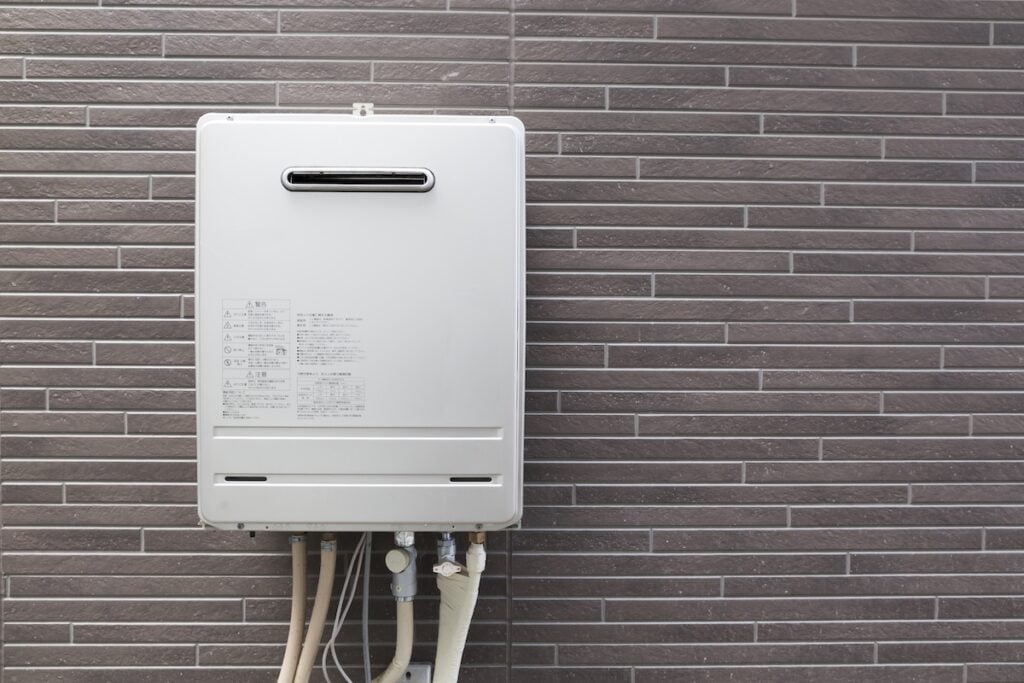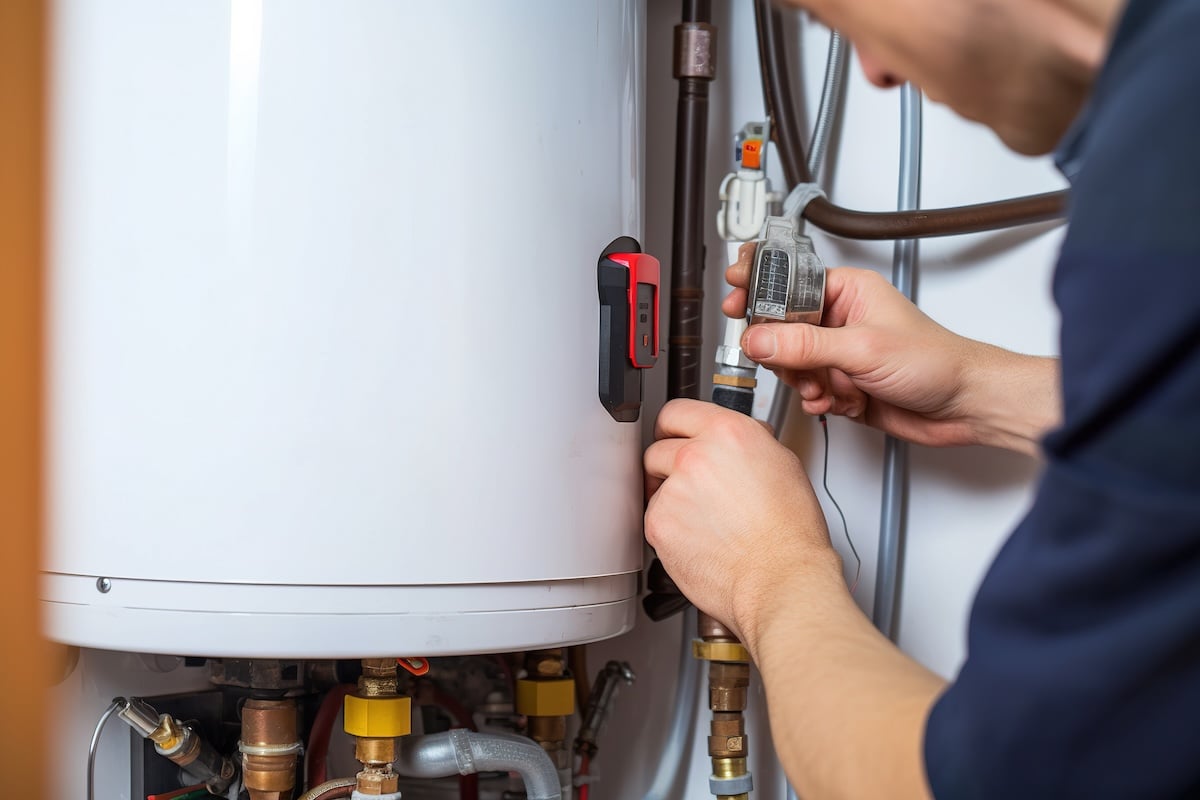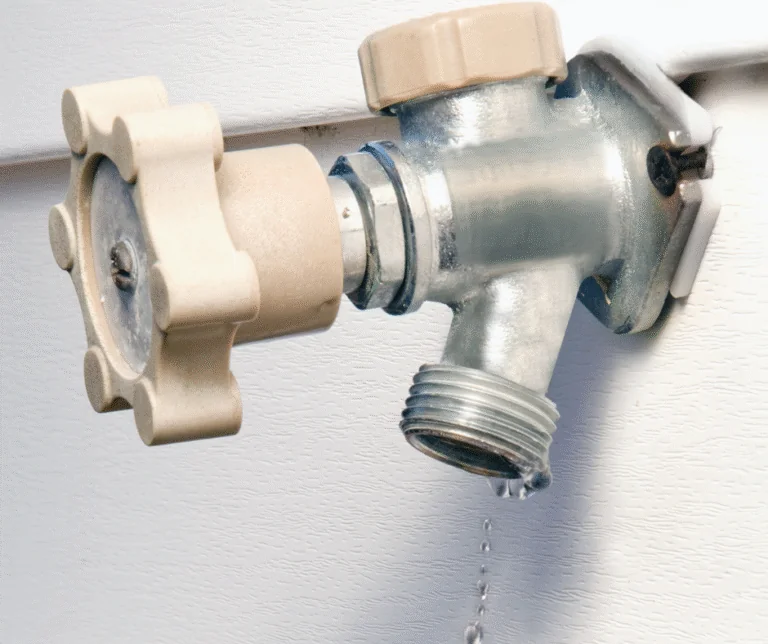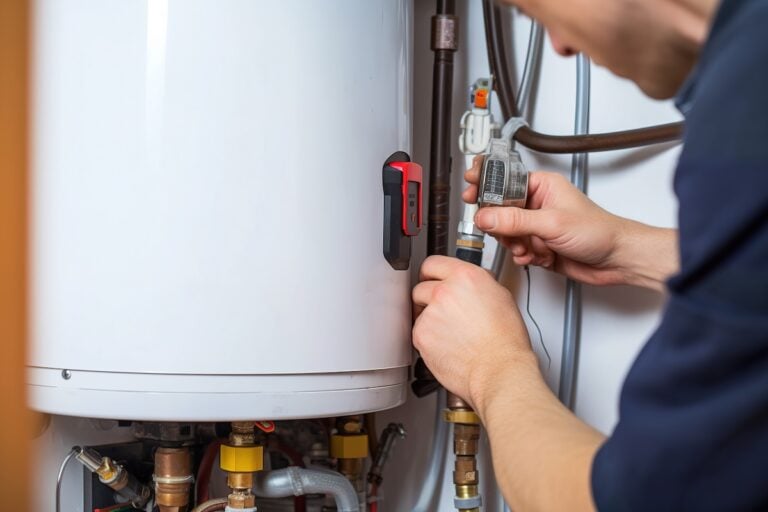When comparing a tankless vs tank water heater, the best choice for your home depends on your household size, hot water usage, energy goals, and budget. Both options come with unique advantages—and understanding how they work can help you make a confident, informed decision.
In this guide, we’ll break down the key differences between tank and tankless water heaters, cover the pros and cons of each, and help you decide which one is the right fit for your home and lifestyle.
- Tankless water heaters offer endless hot water and better energy efficiency.
- Traditional tank water heaters are more affordable up front and easier to install.
- The right option depends on your home size, hot water demand, and energy priorities.
💧 How Do Tank and Tankless Water Heaters Work?
While both types of water heaters provide hot water to your taps and appliances, they do so in very different ways.

Traditional Tank Water Heater
A standard tank water heater stores 30 to 80 gallons of hot water in an insulated tank. It heats the water continuously so that it’s ready when you need it, using gas or electric energy.
- Pros: Lower upfront cost, simple installation, and familiarity.
- Cons: Limited hot water supply and standby heat loss.
Tankless Water Heater
Also known as an on-demand system, a tankless water heater heats water only when you need it. Cold water flows through a high-efficiency heat exchanger that instantly heats it before reaching your faucet.
- Pros: Endless hot water, compact size, and higher efficiency.
- Cons: Higher upfront cost and flow limitations with multiple simultaneous uses.
🤔 Key Differences Between Tank and Tankless Water Heaters
To help you weigh the two options side-by-side, here are the main categories where they differ—and what that means for you as a homeowner.
1. Hot Water Supply
- Tank: Limited by the capacity of the tank (usually 40–50 gallons). Once depleted, you must wait for it to refill and reheat.
- Tankless: Heats water on demand, so you’ll never run out—ideal for long showers or large families with staggered hot water needs.
2. Energy Efficiency
- Tank: Uses more energy because it constantly heats the water in the tank—even when you’re not using it (standby loss).
- Tankless: Only heats water when needed, reducing energy usage by 24–34% for homes that use less than 41 gallons of hot water daily.
3. Lifespan
- Tank: Lasts about 8–12 years on average.
- Tankless: Can last 15–20 years with proper maintenance, offering a longer return on investment.
4. Space Requirements
- Tank: Bulky and typically installed in a utility closet or basement.
- Tankless: Compact and wall-mounted, freeing up floor space—especially helpful in smaller homes.
5. Upfront and Long-Term Costs
- Tank: Lower initial cost, typically $1,200–$2,000 including installation.
- Tankless: Higher upfront cost, usually $3,000–$4,500 installed, but may qualify for energy rebates and has lower operating costs over time.
6. Installation Complexity
- Tank: Easier to install and may not require major plumbing or electrical changes.
- Tankless: Installation may require upgrading gas lines, venting, or electrical systems depending on your home’s setup.
📋 Pros and Cons Summary
Here’s a quick overview to help compare the two systems:
| Feature | Tank Water Heater | Tankless Water Heater |
| Hot Water Supply | Limited to tank size | Unlimited on-demand |
| Energy Efficiency | Lower | Higher |
| Lifespan | 8–12 years | 15–20 years |
| Installation Cost | Lower | Higher |
| Operating Cost | Higher | Lower over time |
| Size and Space | Bulky | Compact and wall-mounted |
| Ideal For | Smaller budgets, simple needs | Energy-conscious homes, long-term planners |
👉 When a Tank Water Heater Makes Sense
For many homeowners, a traditional tank water heater is still the most practical solution—especially when budget or simplicity is top priority.
Best for:
- Smaller households with modest hot water needs
- Homes with older plumbing that may not support tankless systems
- Those needing a fast replacement with minimal changes
- Budget-conscious homeowners looking for a lower initial investment
Upgrades That Improve Efficiency
If you choose a tank model, you can still boost efficiency with:
- Insulated tank jackets: Reduce heat loss and energy waste
- Timers: Schedule heating during peak hours only
- Smart thermostats: Avoid overheating the stored water
👍 When a Tankless Water Heater Is the Better Choice
Tankless systems offer major advantages in long-term savings and consistent hot water—making them ideal for modern lifestyles and larger families.

Best for:
- Homes with frequent or high-volume hot water demand
- Households wanting lower energy bills and higher efficiency
- Homeowners with limited space for equipment
- Long-term planners looking for a durable, eco-friendly investment
Things to Keep in Mind
- You may need to install multiple units or a higher-capacity model for large households.
- Upfront costs are higher, but utility savings and rebates may offset the difference within a few years.
❗️ Should You Switch From Tank to Tankless?
If your current water heater is aging, underperforming, or you’re planning a home upgrade, switching to tankless could be worth the investment. Here’s how to decide:
Consider Switching If:
- Your hot water runs out frequently with your current system.
- You’re renovating and want to free up space or modernize plumbing.
- Your energy bills are high, and you’re looking for long-term savings.
- You plan to stay in your home for at least 10+ years to enjoy the full ROI.
🛠️ Maintenance and Service Needs
Regardless of the system you choose, proper maintenance extends its life and ensures safe, reliable operation.
Tank Maintenance
- Drain the tank once or twice per year to remove sediment.
- Check and replace the anode rod every 3–5 years.
- Test the pressure relief valve periodically.
Tankless Maintenance
- Flush the system annually to remove mineral buildup (especially in areas with hard water).
- Clean the air filter and check venting regularly.
- Schedule professional service for yearly inspections and tune-ups.
Genz-Ryan offers comprehensive maintenance plans to keep your water heater running efficiently—whether you go with tank or tankless.
⭐️ Why Choose Genz-Ryan for Water Heater Installation?
At Genz-Ryan, we’ve been helping Minnesota homeowners with their plumbing needs for over 70 years. Our expert plumbers are trained to evaluate your home’s hot water demands and guide you to the right system with honest, straightforward advice.

- Licensed professionals: Our team ensures safe, code-compliant installation every time.
- Personalized recommendations: We assess your home size, usage patterns, and energy goals.
- Transparent pricing: Get a free quote with no pressure and no surprise fees.
- Trusted brands: We install top-rated water heaters known for performance and reliability.
- Fast, reliable service: We’ll help you upgrade without disrupting your day-to-day routine.
✅ Choose the Right Water Heater With Confidence
Choosing between a tankless vs tank water heater comes down to your household’s needs, budget, and long-term goals. If you want affordability and simplicity, a traditional tank may be the way to go. If you’re looking for energy efficiency, endless hot water, and future-ready performance, a tankless system could be the perfect upgrade.
No matter which option you choose, Genz-Ryan is here to help. Contact us today for a free quote and expert guidance on the right water heater for your home. Let’s keep the hot water flowing—efficiently, reliably, and exactly how you need it.








